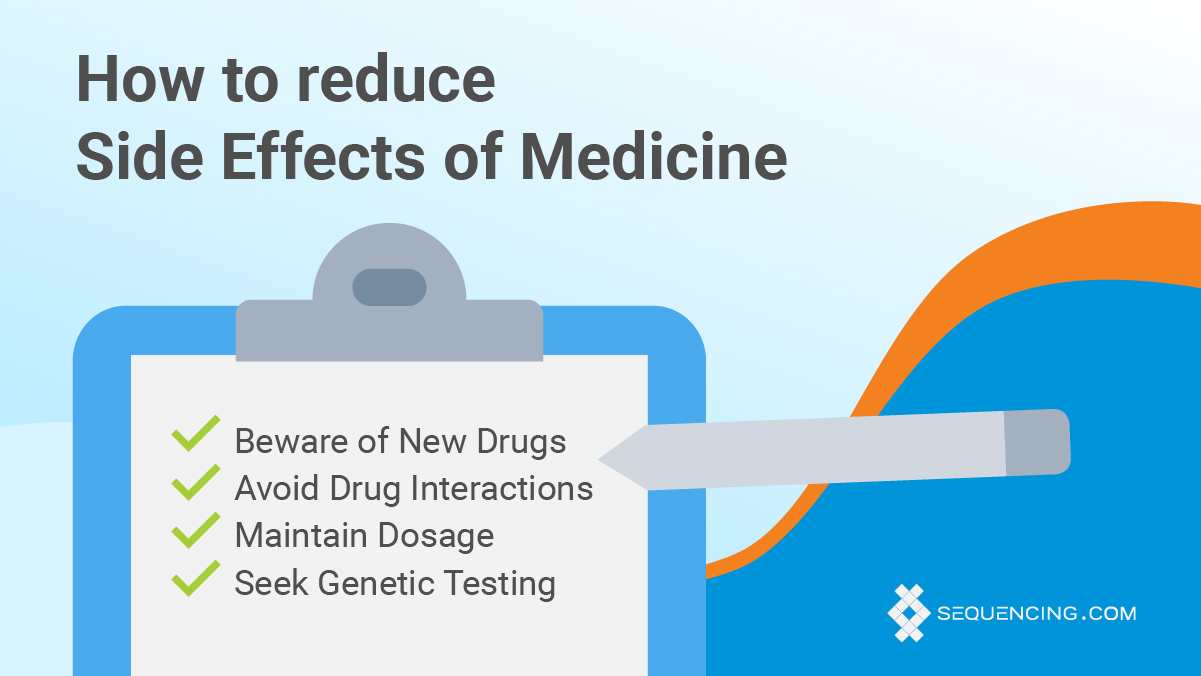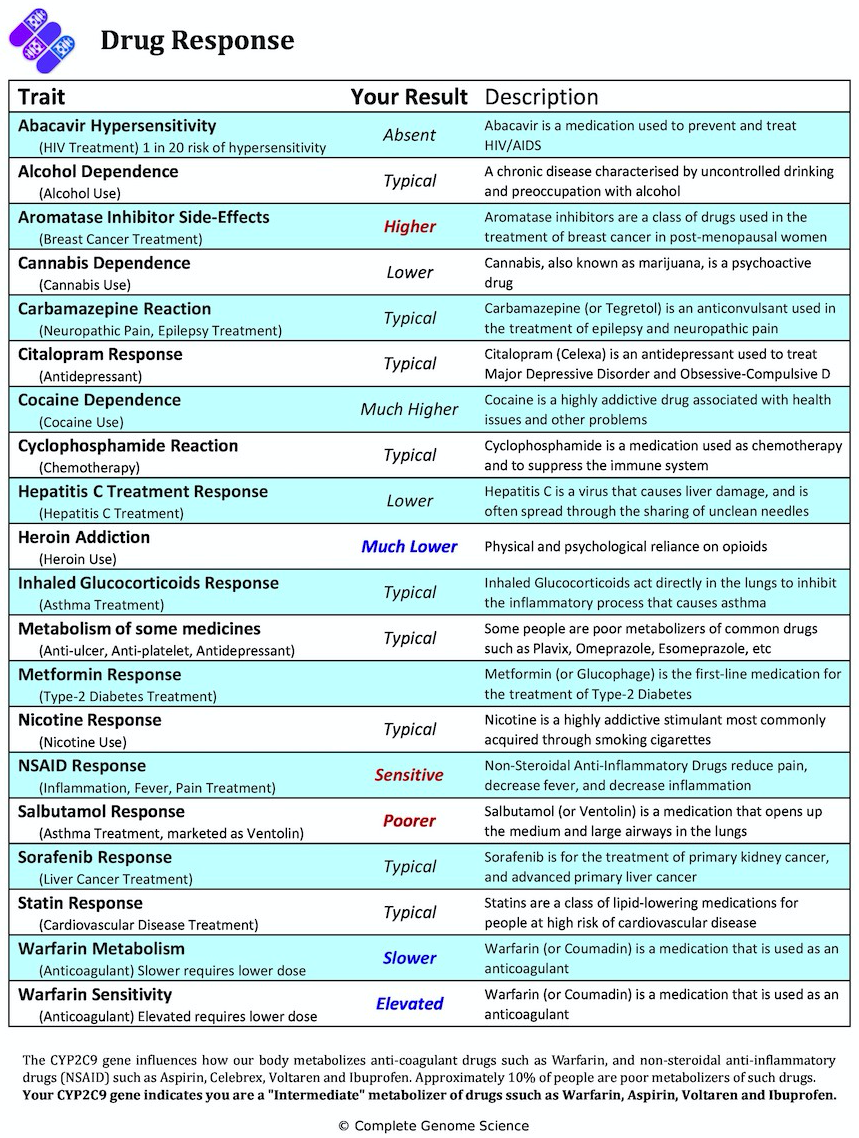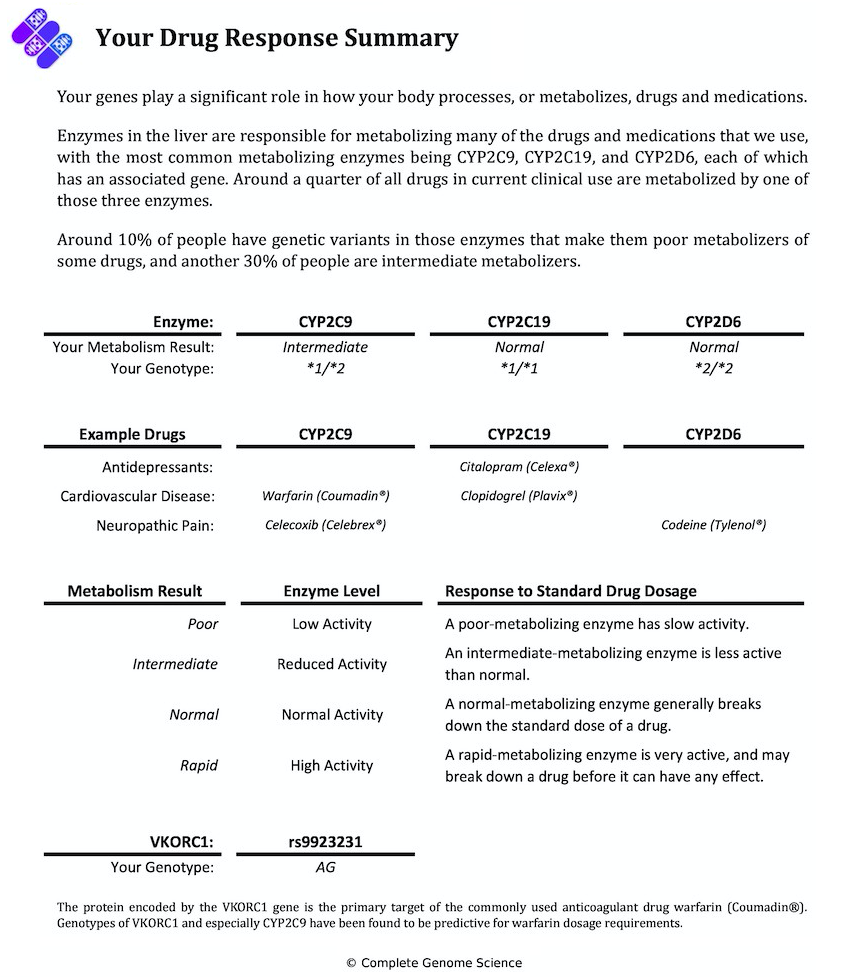
By Dr. Brandon Colby MD, a medical expert specializing in preventive medicine and clinical genomics.
The goal of medicine is to solve a medical problem that causes discomfort, such as joint pain and headaches. Unfortunately, medicine doesn't always achieve its goal. While it may relieve the discomfort people turn to medicine for, it can cause discomfort like an upset stomach. The upset stomach is an example of a side effect.
Knowing how to reduce side effects can help you feel much better as you treat your medical problems.
What Are Drug Side Effects?
Side effects, also known as adverse effects, adverse events, or adverse drug reactions (ADR), are undesirable effects of medicine on the body. The drug can be over-the-counter (OTC) medications, prescription drugs, and herbal and dietary supplements. The unwanted drug reactions aren't necessarily allergic reactions, although those are possible as well.
Potential Drug Side Effects
Most people know when they are suffering from adverse reactions to a new medication because the discomfort begins shortly after taking it.
Common medication side effects people experience include:
-
Upset stomach
-
Headache
-
Nausea
-
Dry Mouth
-
Drowsiness
-
Hives
While the above possible side effects are usually mild, some can be life-threatening.
-
Anaphylactic reaction (a severe allergic reaction)
-
Internal bleeding
-
Suicidal thoughts
-
Cancer
-
Liver damage
-
Heart attack
The U.S. Food and Drug Administration (FDA) controls medications’ approval based on potential side effects. However, since every person's body is different, it is difficult to know how severe side effects can be for some people.
The good news is that there are some ways to reduce the side effects of medicine.
How to Reduce Side Effects of Medicine Effectively
Many people believe there is nothing that they can do about the reactions they have from their prescription medicines. This misbelief can be detrimental to their quality of life because discomfort can interrupt many daily activities.
Knowing that side effects are avoidable is the first step in reducing them. The next step is learning what increases the risk of side effects.
New Drugs
Whenever a healthcare provider prescribes a new drug, there is a chance side effect will be experienced from it because the body is unfamiliar with the drug’s active ingredients.
Sometimes, time will help. For example, after taking a medication for a few days, the initial side effects may dissipate or they may even completely disappear.
Drug Interactions
It is essential to report all drugs and supplements taken regularly to health care professionals. Some medications should not be taken together because medications may interact with each other within the body in harmful ways.
For example, when pseudoephedrine, a common decongestant found in over-the-counter medications such as Sudafed© Sinus Congestion and MAO inhibitors, a class of medications used to treat depression, are taken together, the two chemicals can interact within the body. The interaction of these two medications may cause a severe increase in blood pressure that may result in death.
Increasing or Decreasing Dosage
When the dosage of medication is changed, it may take several days or even weeks before the body becomes accustomed to the new dosage. During this adjustment period, side effects are possible.
In general, increasing the dose of a medication usually increases the risk of side effects compared to when the dose of that same medication is decreased.
Reducing Side Effects by Decreasing the Risks
When looking at the above risks, there are ways to reduce or avoid side effects from medications:
-
Refrain from introducing new drugs.
-
Do not take more than one medication at a time.
-
Keep dosage the same.
Doing the above isn't always possible. A new treatment may become available for a medical condition; drugs’ interactions may not be known even by an MD or a PharmD (a pharmacist); dosage may need to change to maximize treatment results.
What if there was a way to reduce medication side effects while still receiving the necessary treatment and benefit that the medication is meant to provide?
How Genetic Testing Can Prevent Side Effects
Drug-gene testing, known as pharmacogenomics (PGx) or pharmacogenetics, is the study of how genes affect the body's response to medication.
Genes are not only responsible for personal characteristics, but also for how the body processes drugs. Researchers have discovered variants in genes that can identify effective drugs and dosages for common health problems. Researchers have also been able to predict how likely it is someone will suffer from side effects.
Genetic testing is now an effective way to reduce the side effects of the medicine. And the most advanced type of genetic testing, called Whole Genome Sequencing, can now obtain data on all of your genes. Once you’ve had your whole genome sequenced, you won’t need to take another genetic test since your genes don’t change throughout your life.
You can now use data from your DNA test to have a report created about your response to drugs.
For instance, if you suffer from a condition that causes pain, there are many options for treatment. While there has been a tremendous amount of research on the wide range of medications used to treat pain, it can be challenging for both you and your healthcare provider to know which you’ll tolerate well. Should opiates be avoided due to the risk of opiate addiction and the pain be treated with NSAIDs?
A pharmacogenomics analysis, such as the one provided by the Medication & Drug Response DNA Report, will analyze your DNA and provide personalized insights about selecting an effective treatment medication and dose with the least risk of adverse effects.
The Medication & Drug Response DNA Report has information on many types of drugs, including over-the-counter ones such as nonsteroidal anti-inflammatory drugs (NSAIDs like ibuprofen), antacids, and antihistamines. The report’s information can be used by people of all ages who may suffer from common ailments to chronic conditions like high cholesterol, diabetes, and even addictions to drugs such as alcohol, nicotine, cocaine, and heroin.
Below is an example of a Medication & Drug Response DNA Report:


How to Reduce Side Effects of Medicine with a Medication & Drug Response DNA Report
Raw data from a DNA test can be uploaded to Sequencing.com. The data may be from a wide range of DNA tests including our own Ultimate DNA Test or Ultimate Genome Sequencing as well as from most genetic testing companies such as 23andMe, AncestryDNA, MyHeritage, FamilyTreeDNA, and Dante Labs.
After the raw DNA data is uploaded to your account, you can use the Medication & Drug Response DNA app. This app will analyze your DNA and generate a personalized report.
Want to learn more about the personalized report? Click here!
Purchase the report once the raw DNA data has been uploaded to your secure and confidential account. Our Privacy First policy ensures your data remains private. We never sell or share your data, including your DNA data, with anyone.
Once the DNA test has completed, your DNA data will be stored in your confidential Sequencing.com account and ready to use with the Medication & Drug Response DNA analysis app or another report from the wide assortment available from Sequencing.com.
About The Author
Dr. Brandon Colby MD is a US physician specializing in the personalized prevention of disease through the use of genomic technologies. He's an expert in genetic testing, genetic analysis, and precision medicine. Dr. Colby is also the Founder of Sequencing.com and the author of Outsmart Your Genes.
Dr. Colby holds an MD from the Mount Sinai School of Medicine, an MBA from Stanford University's Graduate School of Business, and a degree in Genetics with Honors from the University of Michigan. He is an Affiliate Specialist of the American College of Medical Genetics and Genomics (ACMG), an Associate of the American College of Preventive Medicine (ACPM), and a member of the National Society of Genetic Counselors (NSGC).